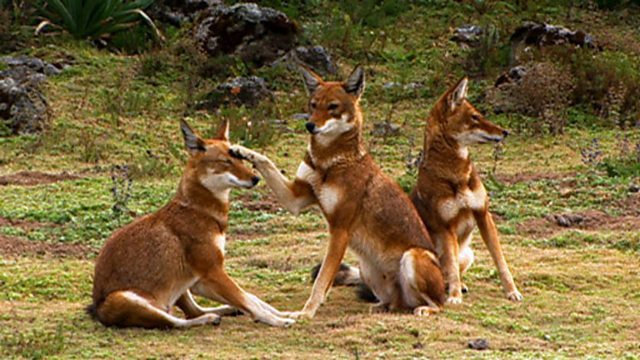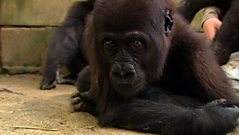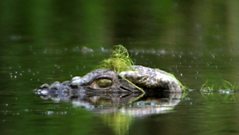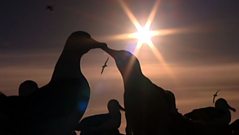
Saving wolves
Ethiopian wolves are the world’s most endangered canine with fewer than 500 adults surviving in just a handful of small, isolated pockets in the mountains of Ethiopia. Their specialisation for the alpine altitude makes their survival all the more precarious. With the continued loss of habitat resulting from the spread of farming and from overgrazing, the wolves are running out of places to live and their small population makes them vulnerable to diseases such as rabies. Conservation efforts to sterilise and vaccinate the local domestic dogs together with community education projects and eco-tourism might be beginning to help the Ethiopian wolf's cause.
After a 4,000 mile journey, Graham Norton arrives in the Bale Mountains, the southern-most part of the Ethiopian Highlands. He is here to find out why, in such a vast and seemingly unspoilt wilderness, there are just a handful of Ethipian wolves left and to discover what’s being done to protect their fragile existence. Dr Claudio Sillero and his team have spent 20 years protecting the wolves in the Bale Mountains, supported by the Born Free Foundation. Out of 500 wolves left in the world, more than half of them live in packs here in the Bale Mountains, and the best chance of finding them together is around a den. Claudio explains that the wolves are victims of their own success. They became specialised to live in the Ethiopian Highlands and now the highlands are so small that they can only accommodate a few hundred. The highlands are a fragile paradise – if too intensively used it could be easily destroyed. So, with people slowly moving in here, the wolves are now effectively marooned right at the top of these mountains. They have nowhere left to go. And with 3,000 families living in the Bale Mountains, it's not only the threat to the wolves’ habitat that's huge: with people comes another, even deadlier menace. In 1991, rabies wiped out three quarters of the wolf population up here. Dogs are kept in villages to protect livestock from hyenas. But being closely related to wolves means that any outbreak of canine disease can easily spread into the local wolf population. To combat that problem. Claudio’s team has successfully vaccinated over 40,000 dogs against rabies – but it’s an ongoing battle against this killer diseases. In the early morning, Claudio drags Graham out of bed to go and catch a glimpse of some pups where he gets a real sense of the social and emotional lives of these animals and of the importance of their continued survival.
Duration:
This clip is from
Featured in...
![]()
����ý Nature
Be captivated, informed and inspired by the world's wildlife.
![]()
On the Brink
A collection of clips highlighting some of the most vulnerable animals and plants on Earth.
More clips from Saving Planet Earth
-
![]()
Saving gorillas—Series 1, Will Young: Saving Gorillas
Duration: 07:58
-
![]()
Saving the albatross—Series 1, Carol Thatcher: Saving Albatross
Duration: 07:07
-
![]()
Saving turtles—Series 1, Saira Khan: Saving Turtles
Duration: 08:12






